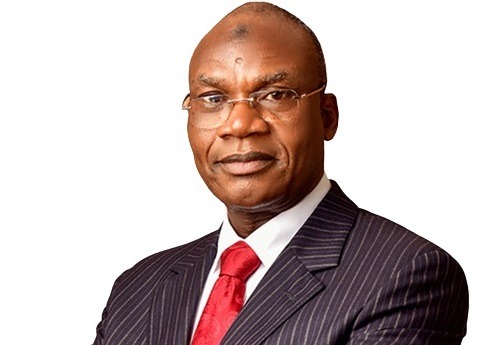The federal government’s move to grant universities financial autonomy is raising fresh ripples in the institutions and fears among students and parents.
Their concerns come against the backdrop of recent drastic increases in school fees in several higher institutions, especially federal and state universities in Nigeria.
A nationwide investigation by LEADERSHIP revealed an astronomical increase in school fees across board. It was also noticed that some of the schools introduced hidden charges which students are forced to pay.
One of the most worrisome charges is the acceptance fee charged new students by the universities. While in some schools the acceptance fee is a flat rate of a minimum N50,000, others charge on the basis of course of study and the nature of faculty. Some reach as high as N75,000.
The investigation showed that federal universities which used to be the cheapest institutions in Nigeria are no longer low-priced due to the fact that the federal government insists the universities must fend for themselves.
The fresh concern that university education may soon be out of reach of the children of ordinary Nigerians was prompted by the recent pronouncement by the minister of education, Professor Tahir Mamman, that the federal government will grant full financial autonomy to public universities.
The universities have cited various reasons for increasing school fees, including poor government funding, rising inflation, and the need to improve infrastructure, enhance academic facilities, and maintain a high standard of education.
The move has, however, sparked debates of a possible hike in fees should the government go ahead to implement the policy.
LEADERSHIP reports that giving autonomy to universities means they are free to explore sources of funding to run their activities and achieve financial sustainability.
However, in an exclusive interview with LEADERSHIP, the National Association of Nigerian Students (NANS), some parents and other critical stakeholders expressed fear that if the government grants full autonomy to the universities, ordinary Nigerians may withdraw their wards from the universities.
NANS expressed dismay and concern about the sudden increase in school fees, saying that the higher costs may prevent students from lowly backgrounds from accessing higher education as the institutions will increase tuition fees to meet up with the demands.
While the actual tuition fee may vary based on discipline, course of study, ‘indigeneship’, and new or returning students, LEADERSHIP discovered that the current fees are already on the high side.
Already, the Academic Staff Union of Universities (ASUU) had opposed President Bola Tinubu’s administration plan to grant autonomy to federal Universities.
Appearing on Channels Television programme recently, ASUU president, Prof. Emmanuel Osodeke, said the government cannot totally withdraw from funding tertiary education in the country, noting that the constitution of Nigeria clearly states that the federal government must fund public universities.
However, in an interview with LEADERSHIP, the coordinator of NANS Zone C, Comrade Anzaku Shedrack said from the position of the minister of education, it’s totally wrong for the federal government to grant tertiary institutions full financial autonomy.
He said given the removal of fuel subsidy, the federal government needs to take full responsibility for education.
He said, “Our stance on the aluta anthem says education must be free. We as a pressure group keep agitating for free education. Now, if the federal government should grant them full autonomy, there will be no way a common man will go to school because everything is going to skyrocket.
“So, what is the essence of removing the subsidy if they can’t use part of the fuel subsidy money to subsidize education for Nigerian students.
“Let them channel this money to education and ensure our economy comes back. That should be their priority rather than granting full autonomy to public universities. Public universities might even become more costly than the private universities because currently we are beginning to match their standard in regards to price, so we kick against it at the level of NANS,” he added.
A parent, Benedict Uge, whose child is a student of University of
Abuja, urged the government to address the issue by closely monitoring fee adjustments to ensure they are reasonable and justifiable for students to afford education.
“Government shouldn’t grant universities full autonomy, rather it should increase funding to higher education institutions to reduce the burden on students and promote transparency in the process,” he said.
An educationist, Pious Tor said granting full autonomy to public universities in Nigeria could skyrocket tuition fees across universities in the country.
Another key player in the education sector, who sought anonymity
because his views would anger his superiors, said the proposed autonomy by the government is an indirect transfer of its burden and responsibility to the universities, which will in turn pass such to the students and ultimately their parents.
He said financial autonomy for the universities means commercialisation of education at that level.
The top educational manager also queried the government’s no-tuition policy in the universities.
He said, “This policy is deceptive. If without tuition students are already paying between N150,000 and N300,000 as fees, what will the situation be like when tuition fees are introduced. Education at any level is a social commodity and must be so treated.”
Current Fees In Some Federal, State Varsities
At the University of Maiduguri, the institution which has about 75,000 students admitted about 11,000 students in the last academic year.
With the increment in fees by over 200 percent, the university only admitted 7000 students in the current admission year, as some students changed their admission to state universities in Borno and other parts of the Northeast that charge less school fees.
The least registration fee at the university is N53,000 while the highest, which is that of the Medical College, is N238,000.
Registration fees for undergraduate students in the Faculties of Arts and Social Sciences were increased from N25,000 and N28,000 to about N100,000.
Prior to the increment, students of the faculty of law paid over N35,000 per session, but with the 200 percent hike, part 1 and 2 of the faculty of law now cough out over N130,000 while those in 400 and 500 levels pay about N103,000.
Parts 1 and 2 new medical students (MBBS) in the College of Medical Sciences pay N252,500 while returning students in higher levels pay N233,000 as against below N100,000 previously charged.
Meanwhile, the Academic Staff Union of Universities (ASUU), University of Maiduguri chapter, has distanced itself from the recent tuition fees hike in the university, saying that the Union was not involved in the fees hike decision.
At the Federal University of Technology, Minna, old students pay
N39,000 while the new students pay N71,000 with no increase in school fees. The hostel accommodation fee at the main campus Gidan Kwanu Hostel has been reviewed upward from N30,000 to N45,000, Shehu Aliyu Hostel from N35,000 to N50,000, New hostel four-bed spaces from N100,000 to N135,000 and new hostel with two bed spaces from N130,000 to N155,000.
At the Bosso Old Campus of the university, the hostel accommodation fee has been increased from N25,000 to N35,000.
At the state-owned Ibrahim Badamasi Babangida University (IBBU), the school fees were reviewed upward from N50,000 to over N90,000.
The management of the University of Ilorin (UNILORIN) told LEADERSHIP that the fees payable by the students had not been changed.
Similarly, the acting vice chancellor of Kwara State University
(KWASU), Malete, Prof Shaykh-Luqman Jimoh, said that the institution will not increase its fees, even in the face of the present economic realities.
Kaduna State University’s (KASU) old school fee for all faculties was N150,000 while current fee is N105,000.
The old school fee was introduced by the former Governor Nasir el-Rufai, while the present governor, Uba Sani, reduced the fees from N150,000 to N105,000.
School fees at the University of Nigeria, Nsukka was increased from N52,000 to N84,000.
At the Enugu State University of Science and Technology (ESUT), the institution has not increased the school fees. The fee remains N225,000.
At the Federal University, Otuoke in Bayelsa State, there is no increase in school fees. The school charges 100 level students N106,000. 200-level to final year student in Arts pay N57,000 while those in the Sciences pay N60,000
The Niger Delta University owned by the state charges Arts (100-level Arts students who are indigenes N120,000, and non-indigenes N140,000, while 200 level to final year students in Arts who are indigenes pay N100,000 and non-indigenes, N120,000.





